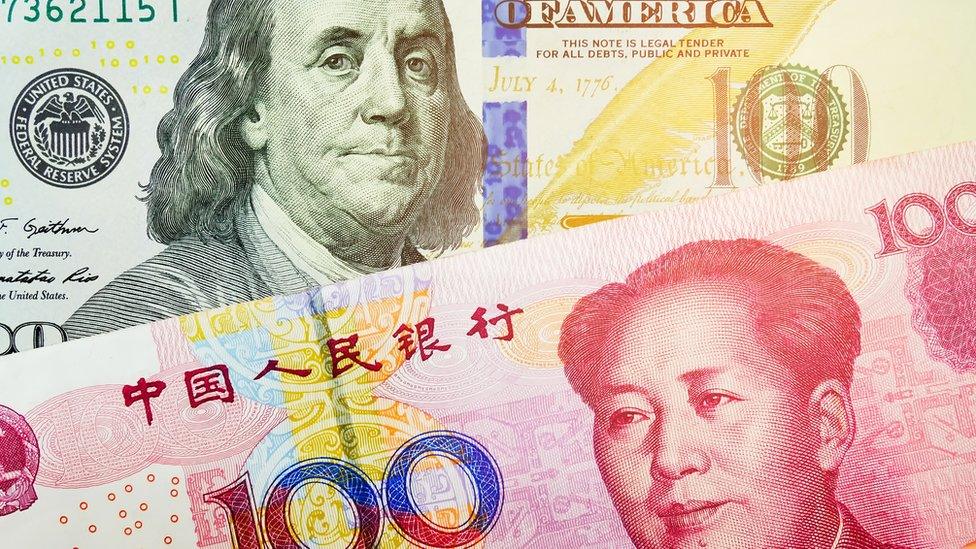US pushes ahead with new rules for Chinese firms
- Published

The US House of Representatives has passed a law to kick Chinese companies off US stock exchanges if they do not comply with its auditing rules.
The act would also require companies to disclose whether they are owned or controlled by a foreign government.
The Holding Foreign Companies Accountable Act still needs the US president’s approval.
The move coincides with a wider push to ramp up pressure on China in the final months of the Trump presidency.
In addition to the act, the US government on Wednesday moved to ban cotton imports from a company it says uses the forced labour of detained Uighur Muslims.
The US also took action against Chinese-manufactured twist ties last week, taking the rare step of imposing tariffs to counter the effects of what the US claims is Chinese currency manipulation.
China too has increased pressure, introducing export control laws earlier this week.
This was widely seen as a response to US export controls on microchips that many Chinese tech companies rely on.
Chip wars: The US v China
‘Toxic status quo’
The act will have little effect over the short term, as foreign companies are only banned if they fail to comply with audits for three years in a row.
The American Securities Association welcomed the bill’s passage, but urged the government to act more swiftly by delisting non-compliant companies by the middle of next year.
The legislation applies to publicly-listed companies from any country, but its sponsors intended for it to target Chinese companies.
“US policy is letting China flout rules that American companies play by, and it’s dangerous. Today, the House joined the Senate in rejecting a toxic status quo,” said Republican Senator John Kennedy, who is one of the bill’s authors.
The US-China Economic and Security Review Commission - which was created by Congress to track possible security threats from China - said that as of October there were 217 Chinese companies listed on these US exchanges.
A number of US-listed Chinese firms, including Alibaba and KFC China operator Yum China, have recently carried out secondary listings in Hong Kong.

Cotton field in Xinjiang
Cotton wars
The Trump administration also banned cotton imports from a Chinese state-owned enterprise it said has used the forced labour of detained Uighur Muslims in Xinjiang province.
The Xinjiang Production and Construction Corps (XPCC) is a quasi-military organisation that reportedly accounts for nearly a fifth of Xinjiang’s GDP.
It is also one of China’s largest cotton producers.
US Customs and Border Protection (CBP) personnel have been ordered to detain shipments containing cotton and cotton products originating from XPCC.
“China’s systemic abuse of forced labour in the Xinjiang Region should disturb every American business and consumer,” said CBP Acting Commissioner Mark A. Morgan in a statement.
Beijing has faced international condemnation for its network of detention centres in Xinjiang which mostly house Muslim minorities.
China has rejected the criticism, saying its aim is to tackle poverty and religious extremism in Xinjiang.